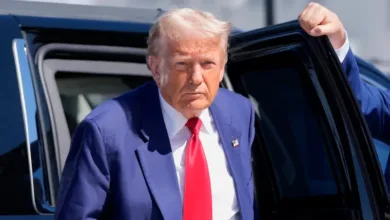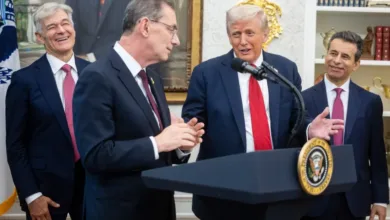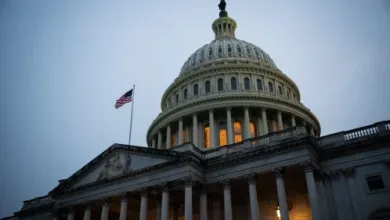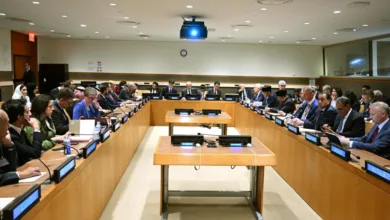Trump Defends Military Use Against the ‘Enemy Within’ in U.S. Cities
Trump’s Remarks on the ‘Enemy Within’
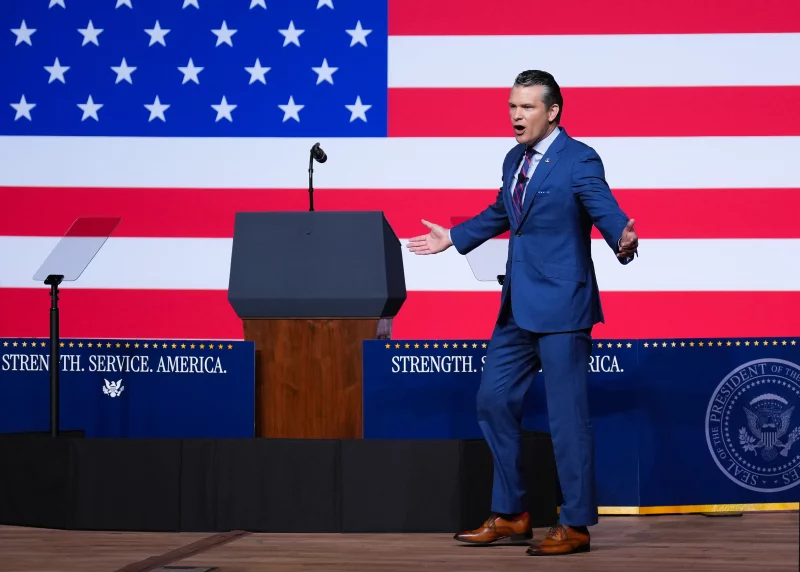
President Donald Trump has recently defended the deployment of U.S. military forces within American cities, describing the need to confront the so-called “enemy within.” Speaking at a high-profile event at Quantico, Virginia, Trump emphasized the role of the military in addressing domestic threats before they escalate. But what does this mean for U.S. cities, military operations, and federal law?
Trump specifically mentioned Democratic-run cities with high crime rates, suggesting these areas could serve as “training grounds” for military personnel. This statement, along with his remarks on renaming the Department of Defense to the Department of War, underscores the administration’s focus on a more aggressive domestic and international military posture. The discussions also included new policies on military fitness, leadership standards, and operational priorities.
This article examines Trump’s comments, the legal and political implications, and how U.S. military leaders responded to these unprecedented directives.
Trump’s Remarks on the ‘Enemy Within’
Domestic Deployment of U.S. Troops
Trump told top military commanders, “This is going to be a big thing for the people in this room, because it’s the enemy from within, and we have to handle it before it gets out of control.” He emphasized that the military’s involvement would prevent escalation and suggested the use of certain cities as practical training grounds.
Targeted Cities and Controversy
The president highlighted Chicago and Portland, Oregon, where National Guard troops were deployed amid disputes with state officials. These comments reignited debates over federal authority, especially considering the 150-year-old Posse Comitatus Act, which generally restricts the use of federal troops for domestic law enforcement.
Department of War and Military Reforms
Renaming and Purpose
Trump and Defense Secretary Pete Hegseth justified renaming the Department of Defense as the Department of War, calling it a “historic reassertion of our purpose, our identity and our pride.” Hegseth stressed that the department’s mission would focus exclusively on warfighting and preparing for potential conflicts abroad.
Military Standards and Fitness
Hegseth announced stricter fitness and appearance standards for military personnel, including generals and admirals. Key changes include:
-
Twice-yearly physical training (PT) tests
-
Height and weight compliance for all ranks
-
Ban on beards and long hair
-
Full review of definitions for “toxic leadership, bullying, and hazing” to empower leaders
Hegseth criticized the military’s current focus on social issues, calling it the “woke department,” and insisted that readiness and discipline must be prioritized.
Political Implications and Reactions
Domestic Political Debate
Trump’s remarks stirred significant debate among political leaders. Critics argue that deploying federal troops in U.S. cities could violate legal limits and exacerbate tensions. Supporters claim strong action is necessary to maintain law and order in high-crime areas.
International Considerations
The gathering at Quantico included military leaders from around the world, raising operational and national security challenges. Observers noted that Trump’s attendance and statements may have complicated diplomatic and military coordination.
Potential Impact on U.S. Military
Leadership and Structural Changes
Speculation surrounded Hegseth’s potential moves to reduce the number of admirals and generals, which currently exceeds 800. While no firings were announced, the possibility reflects a broader push to streamline military leadership.
Operational Priorities
Emphasis on warfighting readiness, rigorous fitness standards, and stricter leadership accountability signals a shift in the Pentagon’s operational culture. Trump and Hegseth framed these reforms as essential to confronting both domestic and international threats effectively.
FAQ: Common Questions About Trump’s Military Remarks
1. What does Trump mean by the ‘enemy within’?
The term refers to domestic threats or areas experiencing high crime rates, according to Trump, where he believes military intervention may be necessary.
2. Can federal troops be used in U.S. cities?
The Posse Comitatus Act generally limits this, but certain exceptions and National Guard deployments under state cooperation exist.
3. What is the Department of War?
Trump and Hegseth proposed renaming the Department of Defense to emphasize warfighting readiness, stricter standards, and a more aggressive military posture.
4. Are generals and admirals affected by new rules?
Yes, all military personnel, including high-ranking officers, must meet fitness, appearance, and leadership standards.
5. Could this affect U.S. relations internationally?
Yes, the presence of foreign military leaders at the event and aggressive rhetoric could raise operational and diplomatic concerns.
Conclusion
President Trump’s remarks defending the use of the U.S. military against the “enemy within” mark a significant moment in domestic and military policy discussions. By renaming the Department of Defense and enforcing stricter standards, the administration signals a shift toward a more aggressive and disciplined military approach. Legal, political, and operational implications remain under scrutiny, leaving both U.S. citizens and international observers attentive to future developments.
